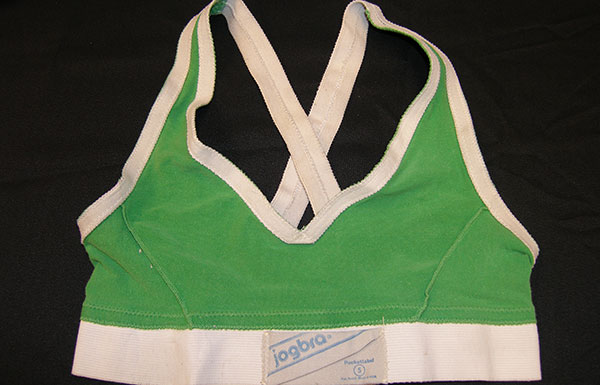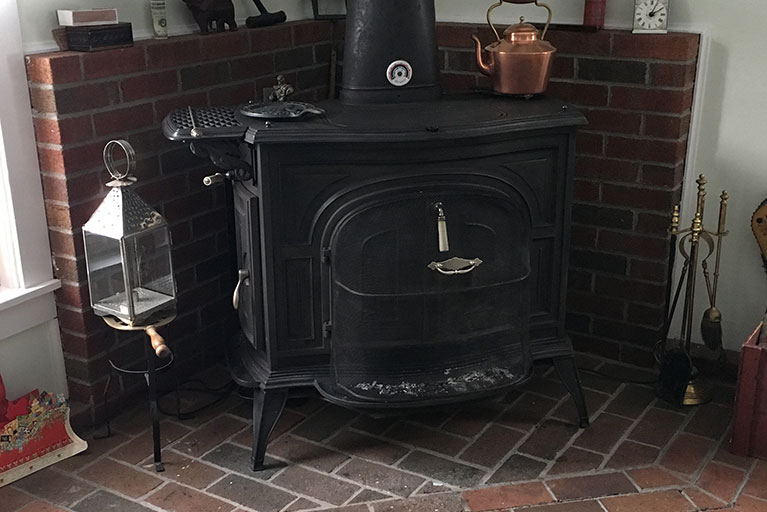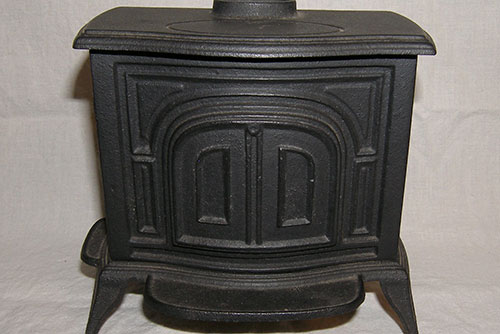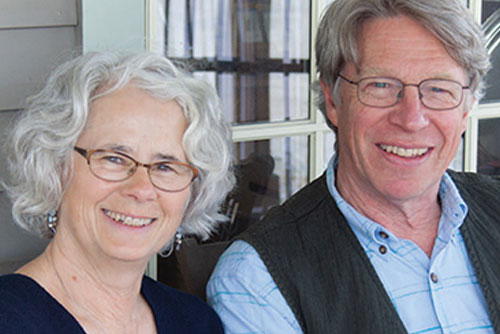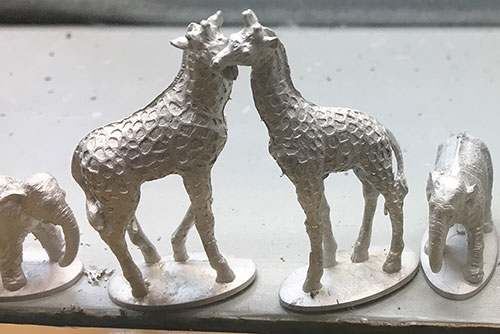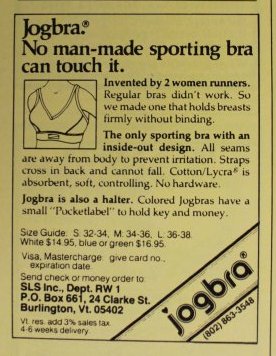From Communes to Commerce
The 1970s are often remembered in Vermont as the decade when thousands of new transplants made the state their home. While the country grappled with scandals like Vietnam and Watergate, back-to-the-land communes offered settlers an alternative path. But the decade was also good for business.
This Episode’s Featured Object:
Original JogBra
Amanda: So I looked it up before we came down here. First jock strap was invented in 1874.
Mary: Wow.
Amanda: Yeah.
Eileen: Yeah.
Mary: That took a long time.
Images: A Defiant stove, today in the living room of Vermont Castings founder Duncan Symes.
A small-scale model of the Defiant stove, made as a toy bank, from the collections of the Vermont Historical Society.
Fred and Judi Danforth of Danforth Pewter.
Small-scale animal figurines in process at Danforth Pewter.
One of the earliest advertisements for the Jogbra.
Episode Transcript
The 1970s in Vermont were a time of energy and change. If you were around, you might think of them as the decade of Vietnam and Watergate, of back-to-the-land communes and women’s rights. You might know that over the course of that decade, Vermont finished its long transformation from one of the most conservative states in the country to one of the most liberal. But you might not think of the 1970s as good for business.
Jennifer Kochman: I think on the communes, it was an experiment in “how can we avoid the whole profit thing?”
Duncan Syme: The 1970s were the back to the land sort of, Stuart Brand, kind of Mother Earth News time.
Bridget Downey-Myer: People at that time were looking for things to do to take part in this huge surge that was going on in the country then of radicalization.
Kochman: How can we live in a way in which we basically figure out how to do things for ourselves? So how can we grow our own vegetables, how can we figure out how to be our own midwives?
Episode Credits
Before Your Time is presented by the Vermont Historical Society, the Vermont Humanities Council, and VTDigger. Our show was produced by Mike Dougherty, Eileen Corcoran, Amanda Gustin, and Ryan Newswanger, with help from Mary Rogstad. Thanks to our guests Hinda Miller, Duncan Syme, and Fred and Judi Danforth. The clips at the beginning of the episode came from the Historical Society’s 1970s Counterculture Project.
Music for this episode is by Michael Chapman and the Woodpiles, Blue Dot Sessions, Podington Bear, and Broke for Free.
